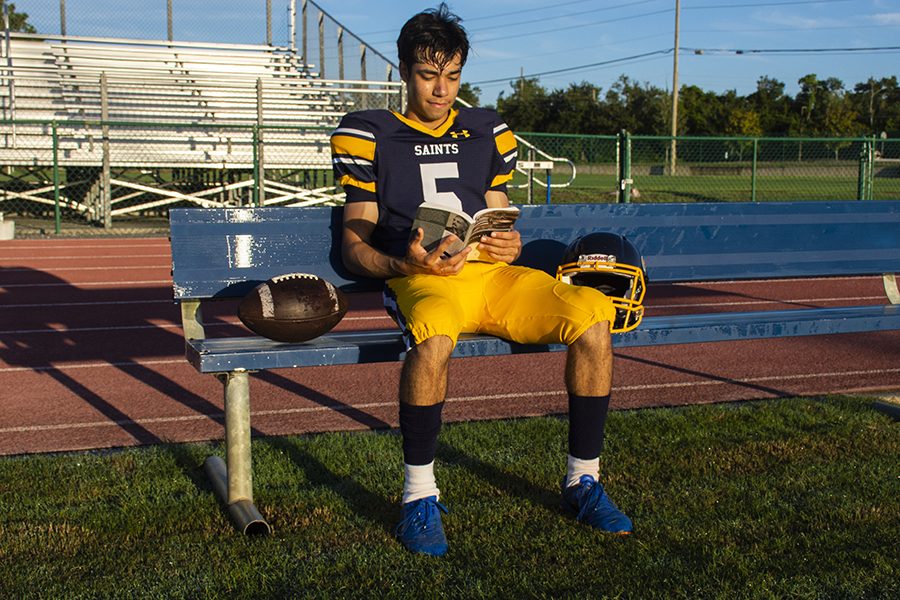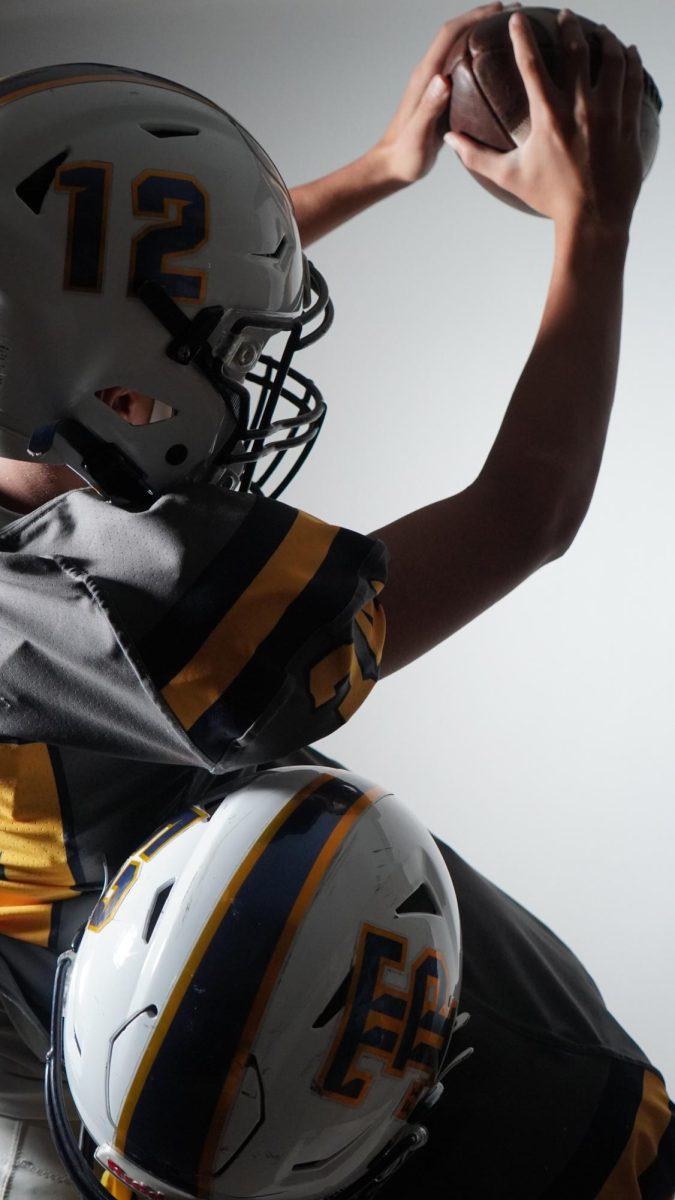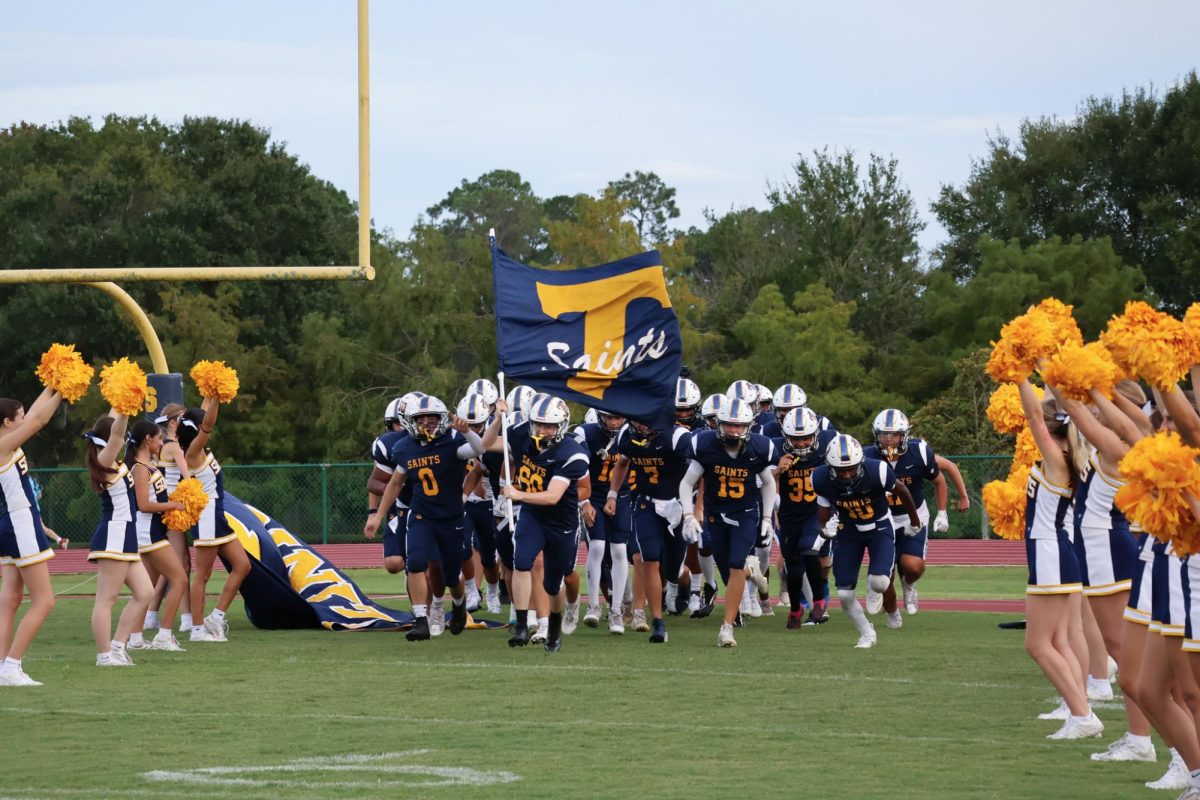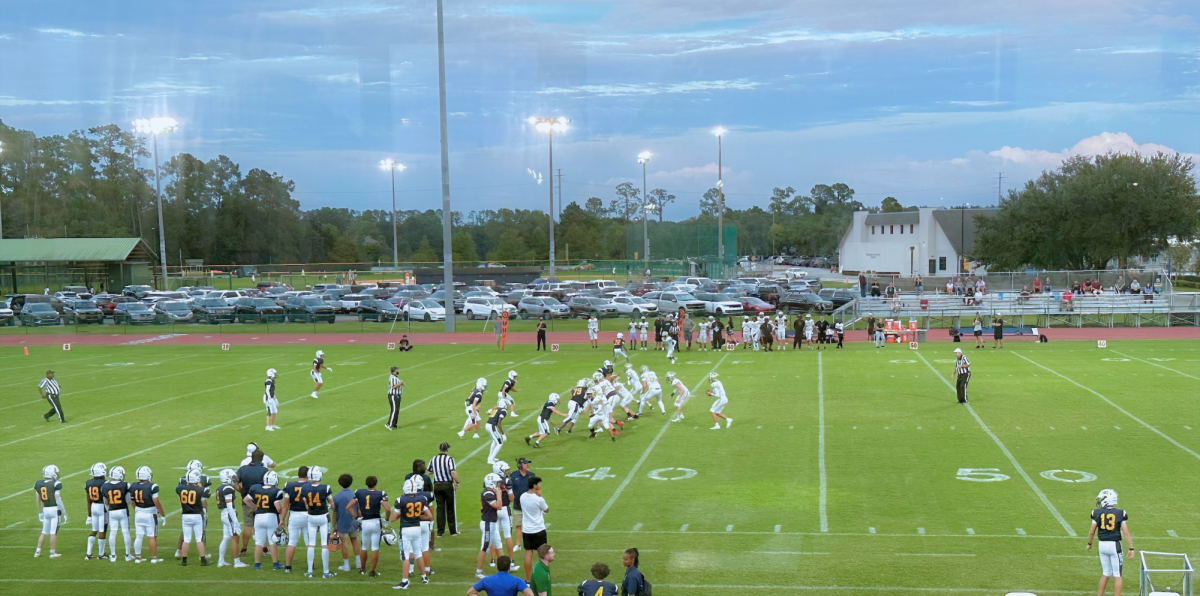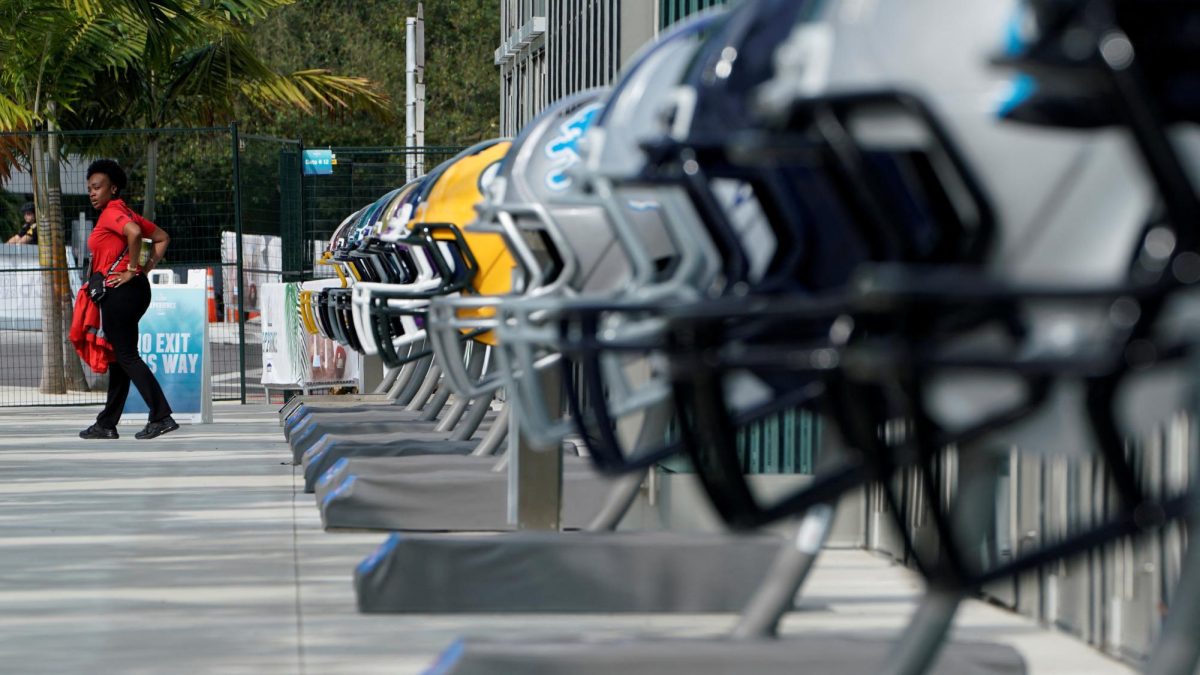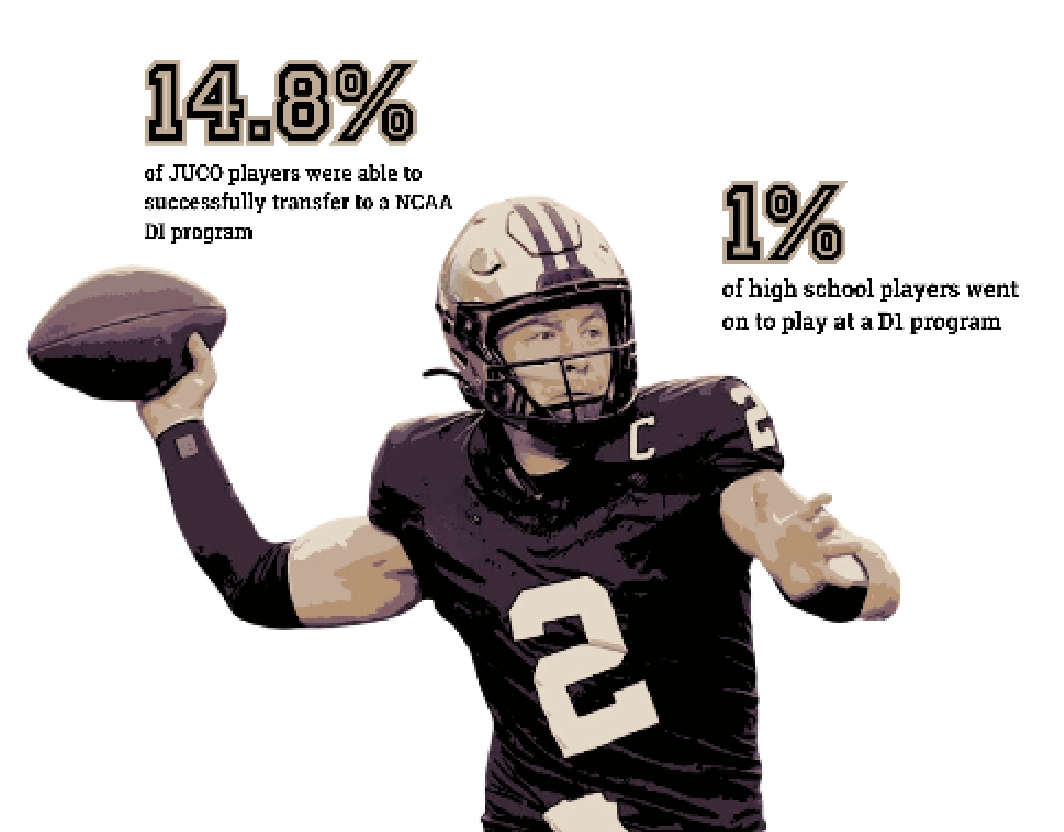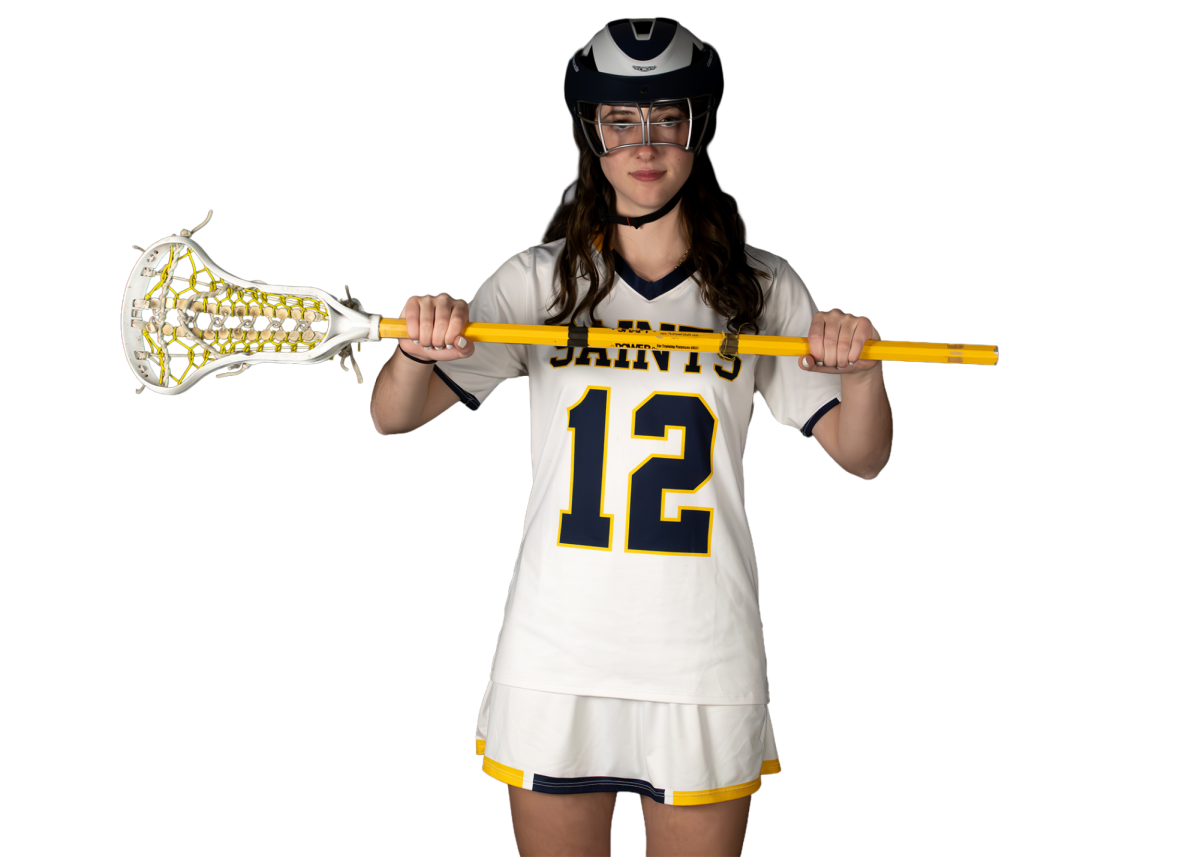Varsity football player Collin Swan steps onto the field. The roar of the crowd is deafening. The junior kicker looks up and sees the bright lights illuminating the grass as he trots towards his teammates. His hardest and only task is before him; he stares down the middle of the two 20-foot yellow uprights that separate his team from victory and defeat. He hears the blare of the whistle and spots his center snapping the ball directly into his holder’s hands. Swan approaches the ball and has only one thought: “Don’t miss.”
Swan watches as the ball sails through the uprights. He is mobbed by his teammates and is carried off the field as a hero.Yet instead of celebrating with his teammates after the game that night, Swan is at home, working just as hard to finish an English essay due the next morning.
The juggling of academics and athletics is an everyday challenge for Trinity’s student-athletes. A student-athlete’s off-the-field accomplishments are normally not as celebrated as their on the field accomplishments are, however they are equally as important. A survey conducted on August 27 of 242 Trinity student-athletes showed that 69.1 percent believe that keeping up with schoolwork is harder during sports seasons, however only 27.7 percent of the group polled earn lower grades during sports seasons. While at other schools, a student’s athletic achievements may alleviate pressure to perform well in their classes, the opposite is often true for the average Trinity student-athlete.
Great coaches can help their players achieve success on and off the field.
“Good coaches apply a consistent pressure on a daily basis about the importance of a [student’s] studies,”Assistant Athletic Director Rita Kienle said. “A good coach is just another person in their corner pushing them to do well in their classes.”
Kienle, who also coaches the JV girls’ lacrosse team, said she makes sure to tell her players that she has their academic success in mind and that it is vitally important for coaches to foster good relationships with their players to ensure academic and athletic success. Swan also believes that athletes should have a close relationship with their coaches.
“The responsibility, perseverance, and commitment learned on the field translates to our everyday life,” Swan said. “The coaches want us not only to succeed at TPS but also in life.”
Swan is an honor roll student who also participates in two varsity sports, football and tennis, and says that his coaches are an important factor in balancing his busy schedule.
Anthony DiGiovanni, who is head of the boys basketball program, is especially interested in his player’s academic success. DiGiovanni requires a weekly progress report from each of his players where their teachers must attest to the academic performance of the student.
“It really helps us to avoid… [an athlete] being ineligible for the season, if he’s hurting his chances for college,” DiGiovanni said. “In the short term we want our guys to get the best education they can.”




